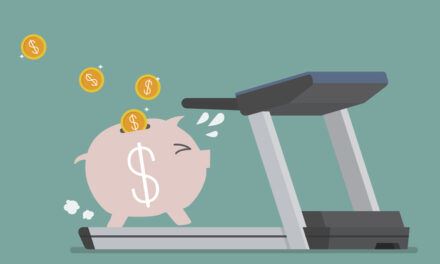Running a household involves wearing many hats, and one of those hats is that of a financial manager. It costs money to run a home, and that money can disappear quickly in areas where it isn’t most needed if it isn’t managed properly. Managing household finances can seem daunting, but with the right strategies and tools, you can take control of the situation and achieve your financial goals. Whether you’re a seasoned pro or just starting out, these simple steps will help you manage your household finances effectively.
Simple Steps to Effectively Manage Your Household Finances
1. Set Financial Goals
Before you can decide what to do with your money, you need to know what you want it to do for you. Having money isn’t just for paying your monthly bills–financial goals are important to help you reach financial security and use your money to enhance your life. These goals could include paying off credit card debt, planning for retirement, buying a house, and even saving for a family vacation. Having clear goals gives you direction and motivation.
2. Create a Budget
Now that you know what your financial goals are, you need a budget to help you achieve them. A budget is your roadmap to financial success. Start by listing all your income and expenses. Divide your expenses into fixed ones, like rent or mortgage and utilities, and variable ones, like groceries and entertainment. Then, spend a month tracking how much you spend in each category. This will help you see where your money is actually going and where you can cut back if needed.
3. Build an Emergency Fund
Part of your budgeting should include building an emergency fund. Expenses are not always predictable, and sometimes, they can be completely unexpected. An emergency fund is a must for unexpected expenses like medical bills or car repairs. Aim to save at least three to six months’ worth of living expenses in an easily accessible savings account. This fund will give you peace of mind and prevent you from going into debt during emergencies.
4. Reduce and Manage Debt
Debt can be a big burden on your finances, depending on what kind of debt it is. A mortgage, for example, is considered good debt as long as you can afford to pay it each month. Credit card debt, on the other hand, should be dealt with as soon as possible, as it gets more expensive over time and hurts your credit score.
To tackle debt:
- Write down all your debts, including the amount you owe, interest rates, and minimum payments.
- Focus on paying off high-interest debts first, while making minimum payments on the rest.
- Look into consolidating debts or refinancing to get lower interest rates and monthly payments.
5. Save for the Future
In addition to an emergency fund, it’s important to save for more concrete goals. This could include retirement, kids’ education, or a big purchase, like a home. Consider different savings options, such as retirement accounts, education savings, and high-interest savings accounts.
6. Review and Adjust Regularly
Managing finances isn’t a one-time task. Your financial standing will change over time, and so will your needs and wants. Set aside a scheduled time to regularly review your financial situation, reassess your goals, and adjust your budget as needed. This will help you stay on track and make smart decisions about your money that reflect your most current financial needs and goals.
Our Experts Can Help You Manage Your Household Finances
Managing household finances doesn’t have to be stressful. By setting clear goals and creating a detailed plan, you can take control of your money and work towards financial stability and success for your family. Remember, consistency and regular reviews are key to keeping your finances healthy. The experts at DeSantis, Kiefer, Shall & Sarcone can partner with you to help you manage your household finances and stay on top of your financial well-being.






